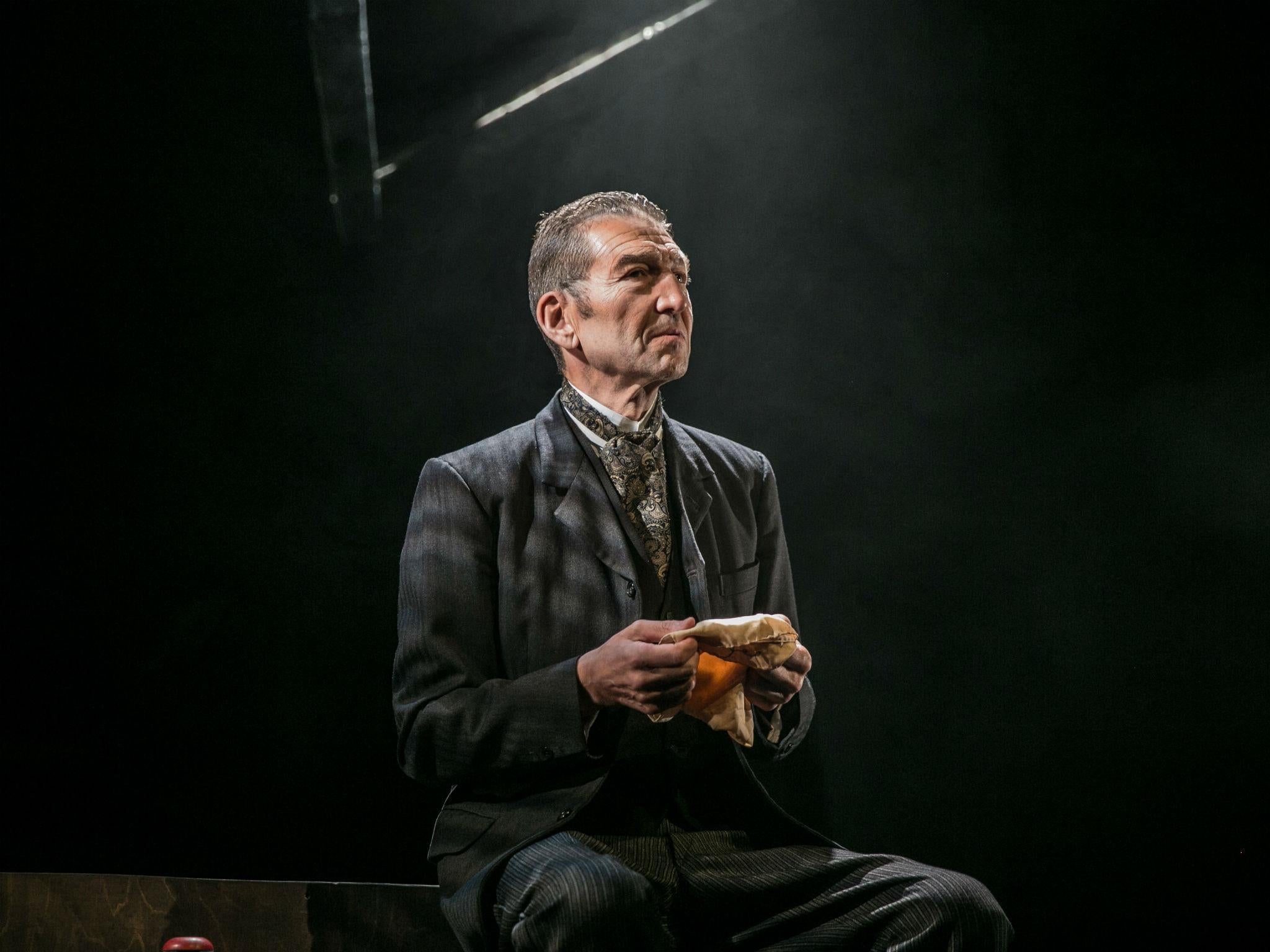The Kreutzer Sonata, Arcola Theatre, review: Greg Hicks is riveting

Your support helps us to tell the story
From reproductive rights to climate change to Big Tech, The Independent is on the ground when the story is developing. Whether it's investigating the financials of Elon Musk's pro-Trump PAC or producing our latest documentary, 'The A Word', which shines a light on the American women fighting for reproductive rights, we know how important it is to parse out the facts from the messaging.
At such a critical moment in US history, we need reporters on the ground. Your donation allows us to keep sending journalists to speak to both sides of the story.
The Independent is trusted by Americans across the entire political spectrum. And unlike many other quality news outlets, we choose not to lock Americans out of our reporting and analysis with paywalls. We believe quality journalism should be available to everyone, paid for by those who can afford it.
Your support makes all the difference.The motion of a train loosens the tongue, opines Pozdnyshev, the local government bureaucrat who is our garrulous travelling companion for the 100 minutes of this horribly compelling monologue that the playwright Nancy Harris has based on Tolstoy's notorious, warped novella. Directed by John Terry and starring the mesmeric Greg Hicks, the show holes us up with this fastidious, elegant figure who proceeds – as if out of some purgatorially recurring need – to try to explain why he was driven to murder his wife.
In Tolstoy’s conception of him, Pozdnyshev comes across as a crazed advocate of the author’s own unfortunate views – the account of the collapse of his marriage serving as an argument for the sexual abstinence that, according to Tolstoy, is required, if we are to attain the higher things. In this dramatic adaptation, the protagonist is much more the unreliable narrator of his horrifying descent into obsessive jealousy and disgust. Hicks’s riveting performance brilliantly brings home how he's a creature of excruciating contradictions – amusingly lofty in his lizard-like disdain and tragically ridiculous in the monomaniac intensity with which he stage-manages the causes of his own suspicion; simultaneously radical in his belief that marriage is “whoredom with a licence” and murderously reactionary in his behaviour.
Pozdnyshev is pitched into into jealous turmoil when his wife, ordered for her health's sake to stop having children, renews her love for the piano and starts to perform duets with a boyhood friend of his, now newly returned as a semi-professional violinist. The protagonist refers to “that vile creation music” and Hicks can't utter the word “musician” without sounding as if he's trying to remove something vile from his tongue. His jibes against the violinist’s social tastes and dress sense, “The man was an embarrassment of effort” are timed with lethal derision. But he's agog nonetheless with an almost religious ecstasy when the pair play Beethoven’s “Kreutzer Sonata”. The problem is that he’s arguably too susceptible to music – his unfounded mistrust aroused by his keen recognition of the dangerous forces at play in that ground-breaking piece.
When Harris's adaptation was produced at the Gate Theatre a few years ago, the innocent couple were glimpsed in candle-lit flashes behind a scrim either getting to grips with the Beethoven or indulging in gestures that conformed to Pozdnyshev's fantasies about them. It intensified our aware of the subjective nature of this testimony. Here, the pianist is Alice Pinto and the violinist Phillip Granell who are not required to represent distorted versions of the fictional pair. On stage throughout at the shadowy rear, they play snatches of the Kreutzer at the climactic concert and perform Harry Server’s eloquent, Beethoven-indebted score, which imbues the entire proceedings with the creepy sense of how music continues to haunt the acquitted murderer.
Hicks, in a splendid tour de force, makes you pity Pozdnyshev even as you morally recoil from him. “She would have thanked me,” he insists, for surreptitiously wiping the rouge (“just a fraction too red”) off her corpse at the funeral director's, as if a moment of remembered punctiliousness will stave off the nervous breakdown of belated remorse.
To 23 July; 020 7503 1646
Join our commenting forum
Join thought-provoking conversations, follow other Independent readers and see their replies
Comments